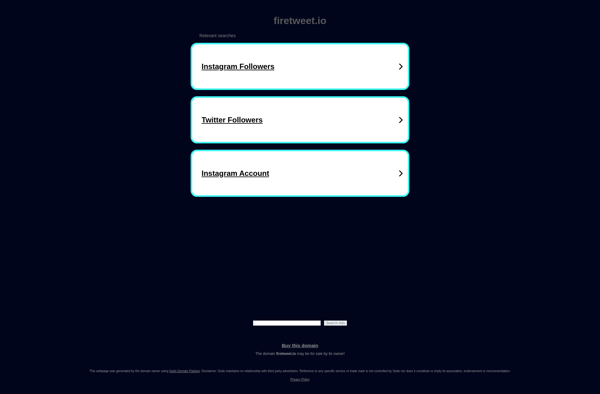GNUnet
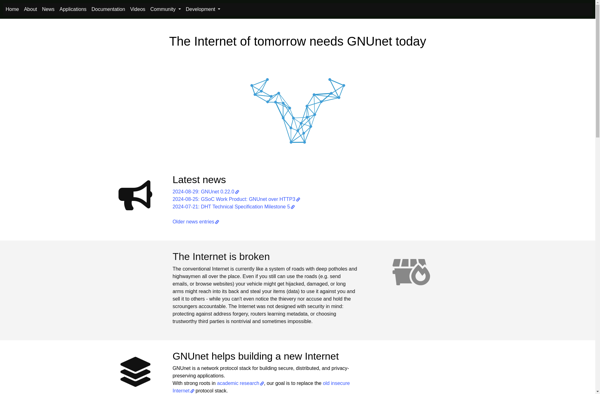
GNUnet: Secure Peer-to-Peer Networking Framework
A decentralized network for secure data exchange, replacing traditional internet architecture with censorship-resistant services like content distribution and privacy-preserving transactions.
What is GNUnet?
GNUnet is an open-source framework for decentralized, peer-to-peer networking designed to provide secure communication and basic services without the need for centralized servers. Developed as part of the GNU Project, GNUnet aims to replace the current client-server model of the internet with a more decentralized architecture.
At its core, GNUnet provides the building blocks for creating secure, anonymous peer-to-peer applications. This includes encrypted communication between peers, censorship-resistant file-sharing, a distributed data store for global name resolution, and privacy-preserving transactions. The goal is to offer basic infrastructure and services like content distribution, messaging, and payments without relying on third parties.
From a technical standpoint, GNUnet consists of multiple components and layers that work together. This includes transport encryption, peer discovery services, distributed hash tables for data storage, and economic protocols for incentive management. Peers connect in a mesh network topology and communicate directly rather than routing everything through central servers.
Overall, GNUnet brings the ideas of decentralization, security and privacy to network communication and applications. With its censorship-resistant architecture and cryptographic identity management, it reduces reliance on existing communication channels and infrastructure providers. This makes it more resistant against surveillance, censorship and service disruption while putting users back in control of their data and communication.
GNUnet Features
Features
- Decentralized network architecture
- Censorship resistance
- Anonymous and secure communication
- File sharing
- Distributed data storage
- Cryptocurrency transactions
Pricing
- Open Source
Pros
Cons
Official Links
Reviews & Ratings
Login to ReviewThe Best GNUnet Alternatives
Top Network & Admin and Decentralized Networks and other similar apps like GNUnet
Here are some alternatives to GNUnet:
Suggest an alternative ❐UltraSurf

Freenet
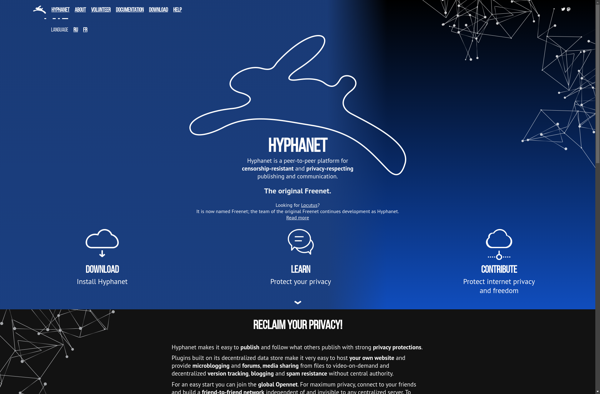
Freegate
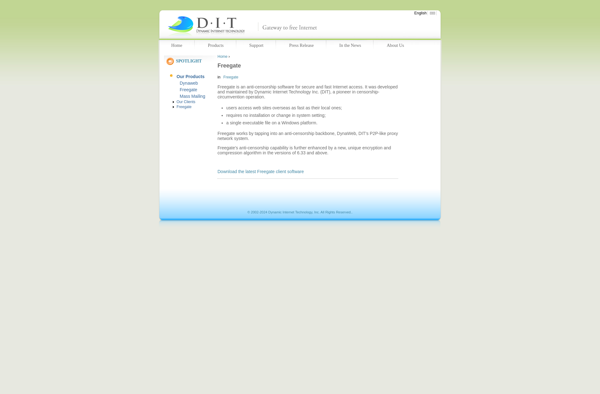
Matrix.org
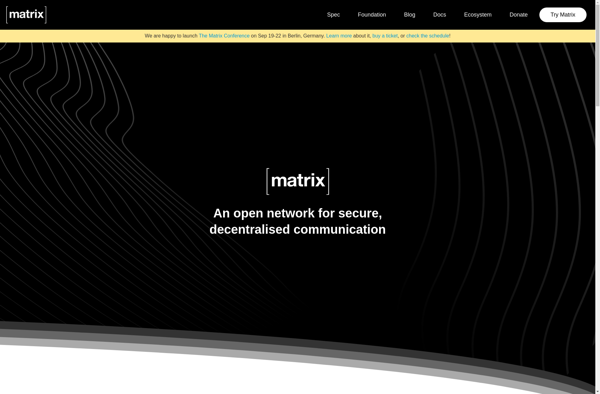
I2P
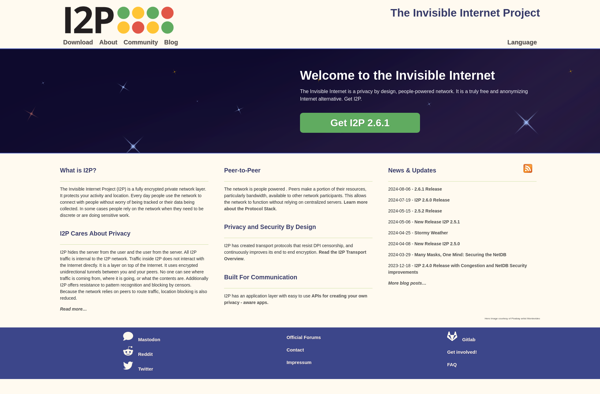
IPFS
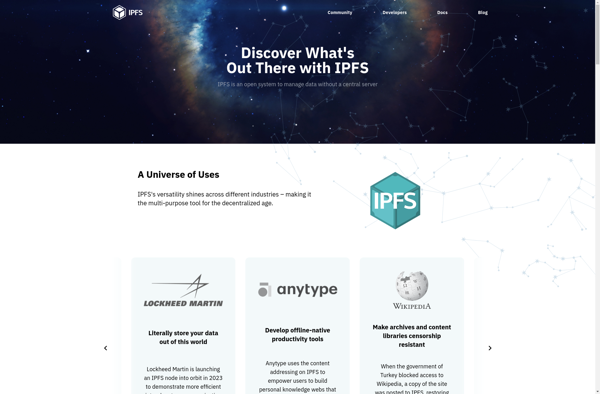
ZeroMe
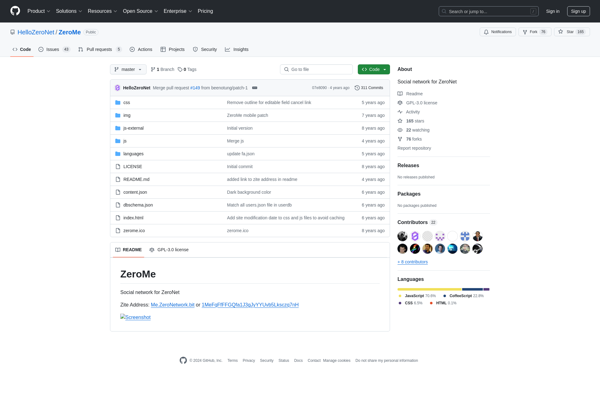
Onion.ly
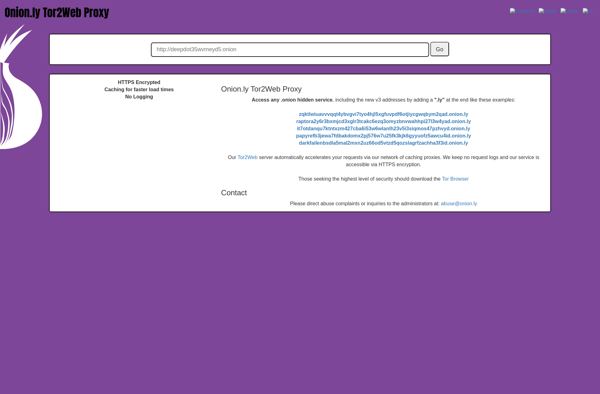
Tunngle
Shadowsocks

Yggdrasil
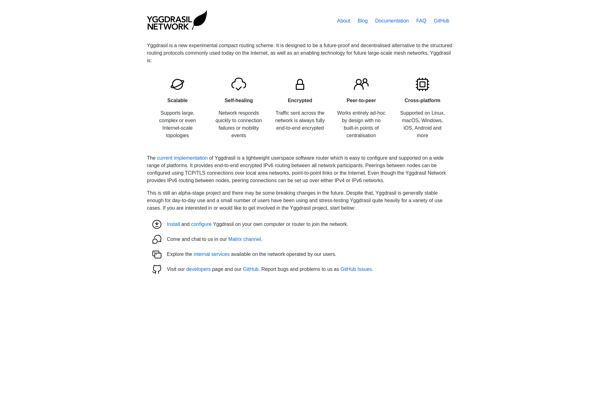
Decentralized Internet

Touch VPN
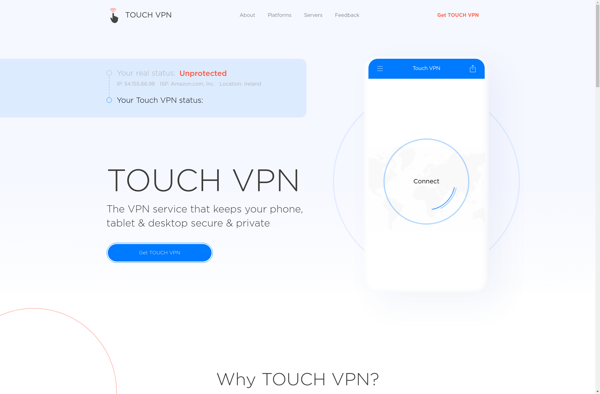
OnionCat
CoovaChilli
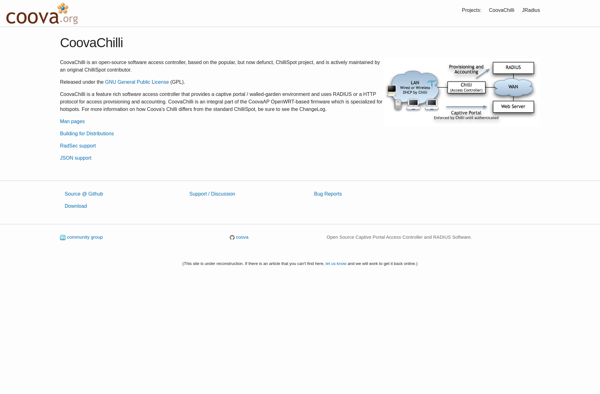
Vidalia

Demonsaw
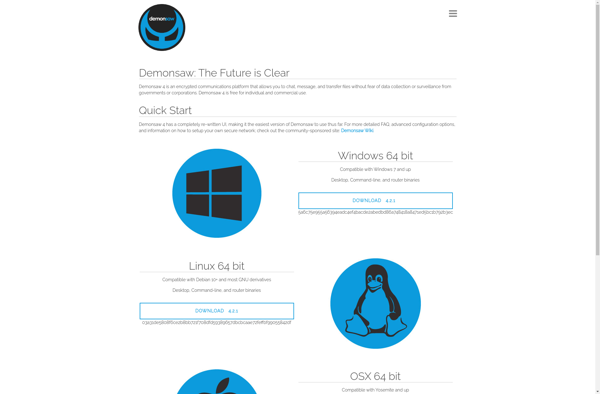
Snowflake Tor
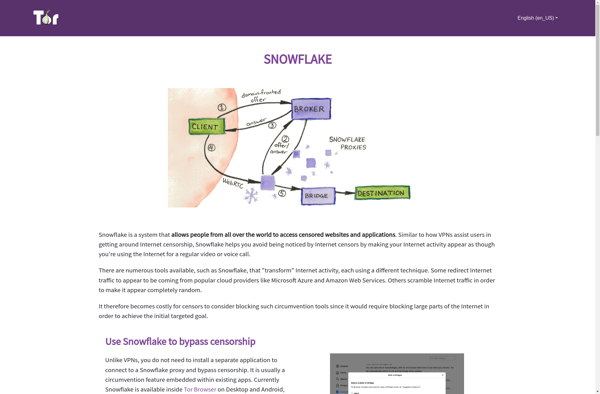
MuWire

Ninux

Cjdns
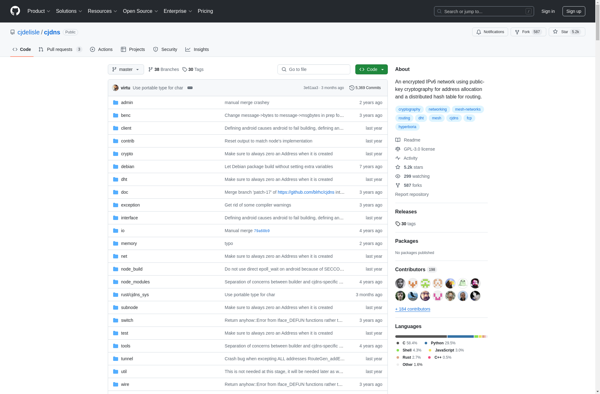
ECnet
Telehash

Project Maelstrom
Babel (protocol)
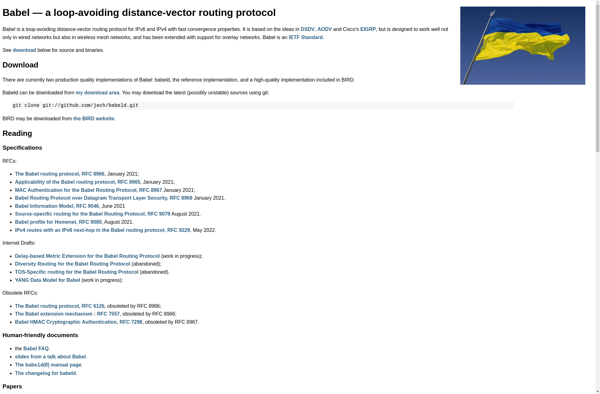
VPNMaster

BitDust
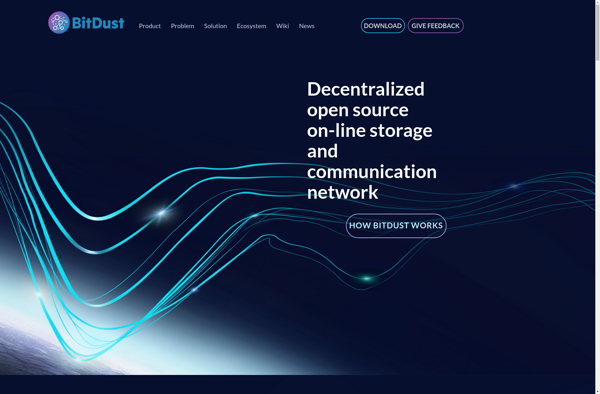
Mith.co
Perfect Dark
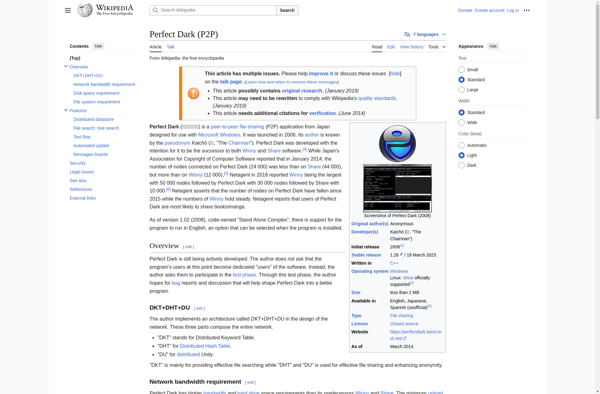
OLSR (Optimized Link State Routing)

LibertyHero
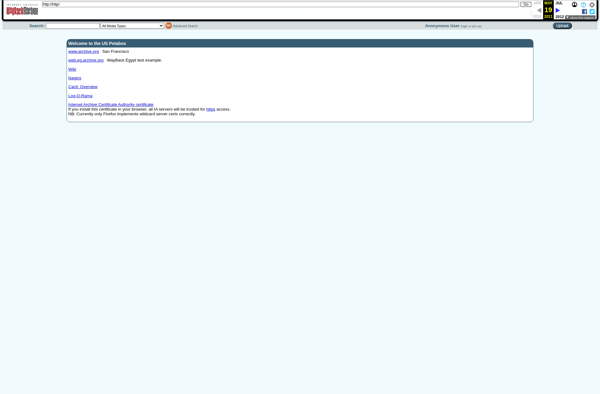
Qaul
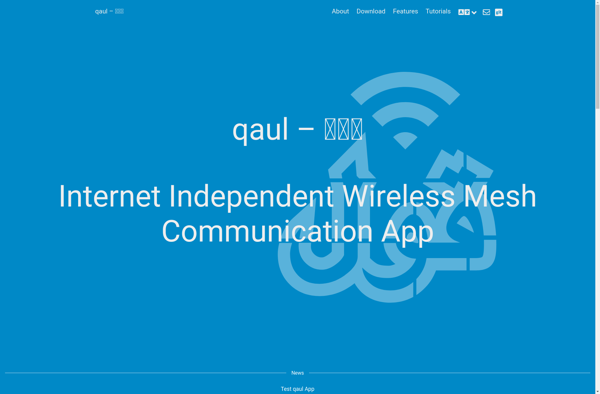
NotMyIP
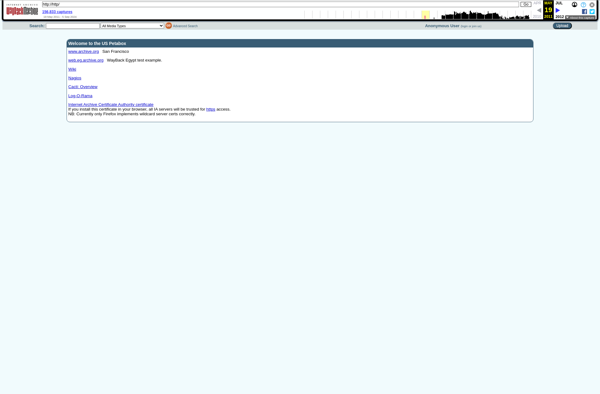
SailfishVPN
Supernet
Stealthnet
IP Privacy

SelekTOR
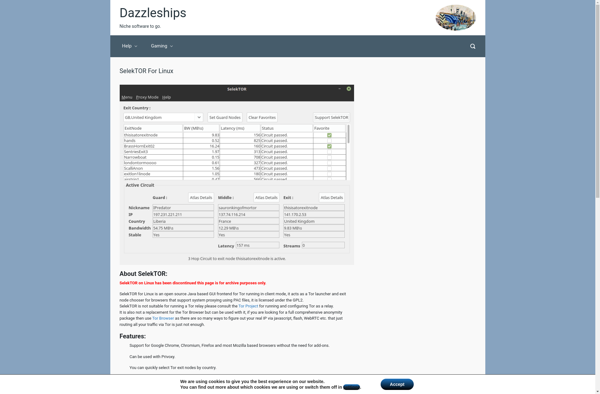
UltraVPN
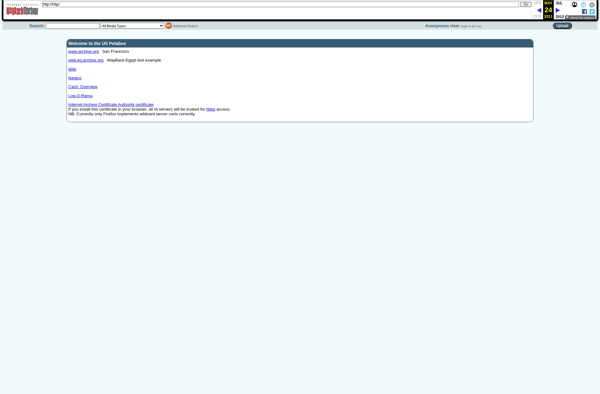
Phex

Netsukuku
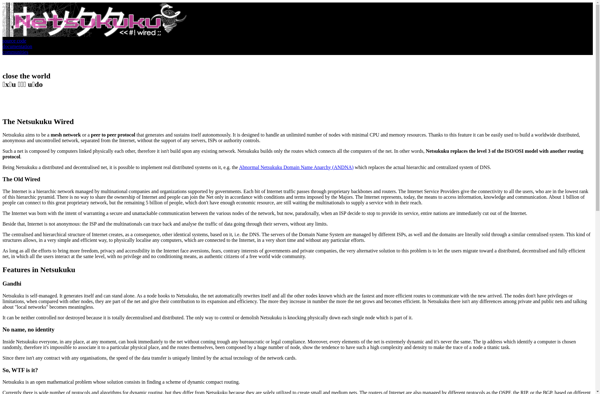
Osiris SPS
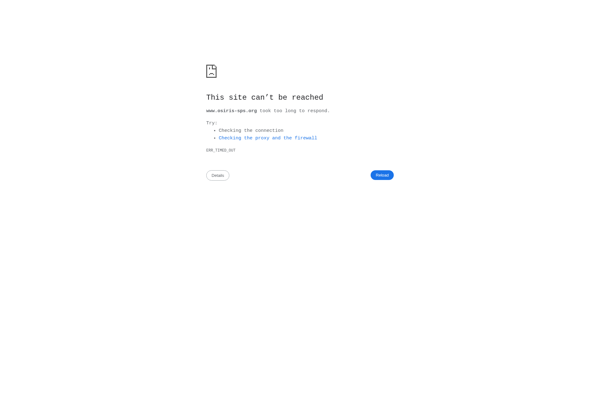
FBVPN
SMesh
Anomos
FireTweet
